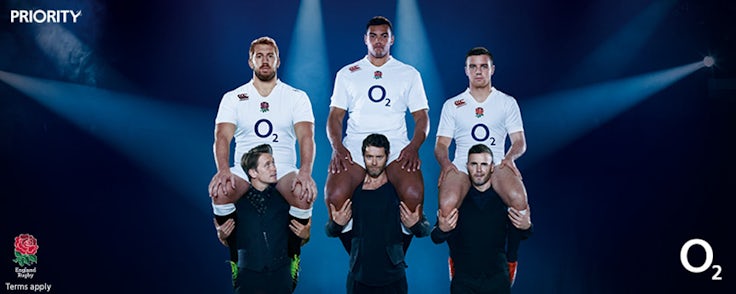A marketer’s essential guide to the Rugby World Cup
How brands can exploit consumer engagement that will be ‘off the scale’.
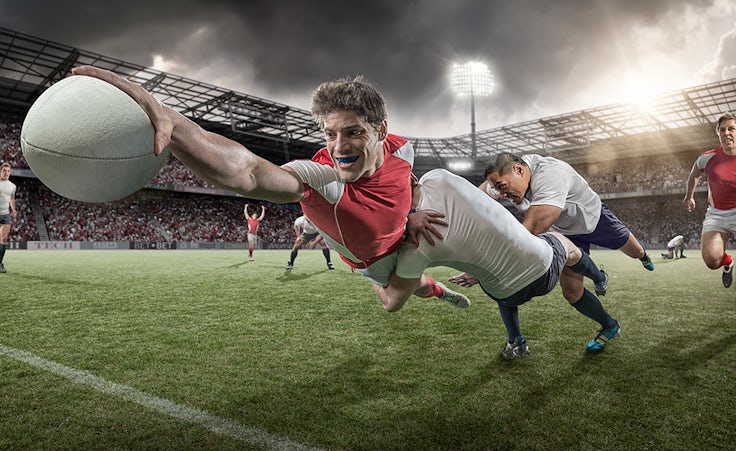
If the Rugby World Cup is a less compelling marketing opportunity than its football equivalent, you wouldn’t know it from talking to Nic Fletcher, head of marketing at English rugby’s governing body the Rugby Football Union (RFU).
“The engagement with the Rugby World Cup is going to be off the scale,” he insists, looking ahead to kick off on 18 September.
“People love a big event in this country. They want to follow their country because they’re patriotic and it brings out a whole new tranche of people that want that excitement in their life and that passion point.”
The figures would appear to support Fletcher’s optimism. The quadrennial tournament, which takes place in England and Wales this year with the final on 31 October, is now comfortably the world’s third-largest sporting event in terms of ticket sales after the Olympics and the football World Cup. This year’s tournament is expected to be the most commercially successfully to date, with over 20,000 hours of coverage broadcast in 205 territories.
A total of 83 countries competed in the qualification rounds to make up the final 20 teams – the highest number in the history of the competition. In addition more than five million applications were made for the 2.3 million tickets available for the tournament during the 17-day general sale window in September 2014.
So what does the sport’s recent ascent mean for brands that want to raise their visibility and drive sales and engagement during this autumn’s Rugby World Cup? Should all marketers look to get involved, and how can sponsors and non-sponsors alike capitalise on the biggest sporting event on British soil since the 2012 Olympic Games?
The ‘major event’ effect
Newspaper group Trinity Mirror, which owns the Daily Mirror and 100 regional news brands such the Manchester Evening News, believes the World Cup presents a clear opportunity for its titles and advertisers to reach a huge cross-section of the UK population. Research from its 4,000-strong reader panel finds that 66% plan to follow the tournament this year, with 61% stating that they follow a sport more closely when there is a major event. Seventy-one per cent also agree that they feel a sense of pride in home-hosted sports tournaments.
Zoe Harris, group marketing director at Trinity Mirror, attributes this response to the growth of ‘major eventers’ as a segment of the population, meaning people who have a limited interest in a given sport but who tune in and actively engage during major events. This is a consequence of sweeping demographic change across the country, she claims.
“The UK used to be split into upper, middle and working class and everyone sort of knew their place and therefore knew their politics and their sport,” says Harris.
“In the space of just a generation we’ve seen a real societal shift so that whilst there is still the very top sector of incredibly rich people and a struggling group at the bottom, we see from our data and our audience that there is a much bigger mass in the middle – what we call ‘Modal Britain’.”
She argues that the shared experiences of the majority of the population, such as the 2008 recession and the “democratisation of digital”, have led to a communal need for “belonging and betterment”. Major events like the Rugby World Cup meet these needs by facilitating mass involvement – a trend demonstrated by London 2012 and reinforced by people’s propensity to share what they are doing on social media.
“A generation ago rugby was a game played and watched by a southern, professional, university-educated elite,” says Harris. “Now with the World Cup there’s a real opportunity for everyone to make a day of it and get together with family. These major eventers are very happy to throw themselves into it too – it’s not a casual thing for them during the [tournament] period. It’s exciting and something they share with their friends and family.”
Trinity Mirror aims to reach this broad audience during the tournament with heightened levels of editorial coverage including videos, live blogs, social campaigns, interactive infographics and giveaways in its newspapers such as wall charts. Former professional players such as Matt Dawson and Barry John have also signed on as columnists.
Harris claims that advertiser interest increases significantly around major events like the Rugby World Cup as brands look to reach a highly engaged readership. According to figures from the Trinity Mirror reader panel, 45% of people notice more ads when there is a major sporting event being reported on.
“There’s still this perception that sports fans are just young men, but actually it’s much wider than that, especially on these types of occasions, so it’s a good opportunity for brands to get involved in something that’s feel-good and participative and also where there’s that growing interest in sport,” adds Harris.
Interest in rugby to ‘double’
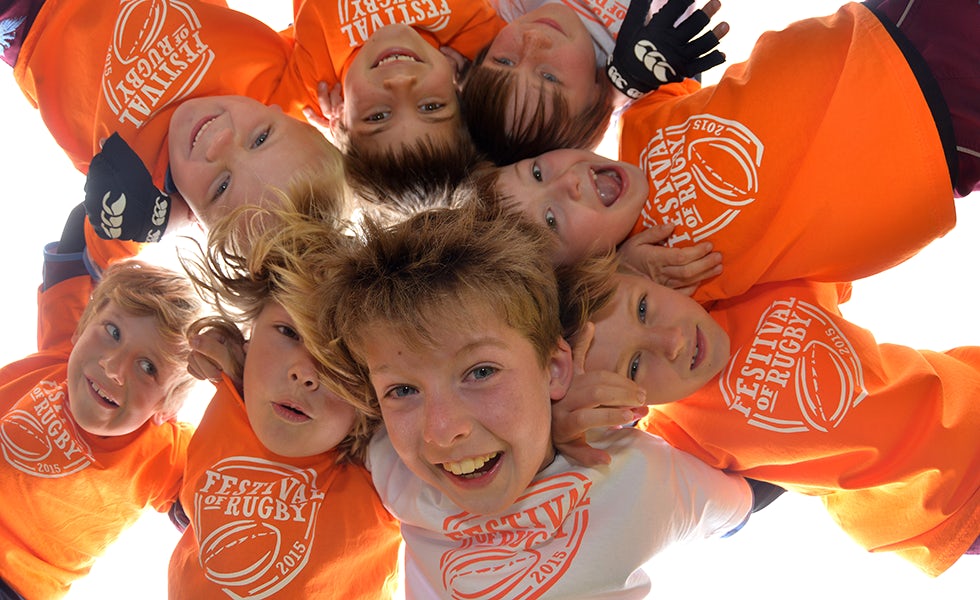
The RFU’s own research adds weight to Trinity Mirror’s claims. It estimates that between 10 million and 12 million people in England are interested in rugby throughout the year. Fletcher says the organisation expects that figure to double during the World Cup.
Through its own campaigns, the RFU is seeking to create a broad sense of participation across the country. In June, for example, it launched the Festival of Rugby 2015 – a four-month initiative that is encouraging people to host their own rugby-themed events. These include bake sales, local fetes and music concerts, with the rugby element incorporated in different ways such as food, décor or by hosting the event at a local rugby club.
The RFU, which is promoting the festival via its social media channels, reports that it has already had over 1,000 registrations on its website from people that want to put on events. Successful applicants have their event promoted by the RFU and receive access to the Festival of Rugby 2015 branding for use on t-shirts, bunting and posters.
In addition, the RFU is running a campaign called Every Voice Counts in which it is inviting the public to upload videos of themselves singing Swing Low, Sweet Chariot – the song commonly sung by England rugby fans during home matches at Twickenham Stadium. A selection of these submissions will appear in the video for a new version of the track when it is released next week, with pop star Ella Eyre also providing vocals.

“In 2012 there was quite a late start to [excitement around] the Olympics,” notes the RFU’s Fletcher. “It didn’t really kick off in earnest until about a week or two before the event and then it just went crazy. I think we’re going to see the same with the Rugby World Cup.”
What puts the tournament on a similar footing to the Olympics and football World Cup – though undoubtedly with a smaller audience – is that it is one of the few sporting events whose appeal extends across multiple continents.
The rapid growth of the sport was demonstrated last November by the decision of the International Rugby Board, the world governing body and organiser of the tournament, to rebrand itself as World Rugby. The move highlighted the rising level of professionalism and commercial nous within the sport and the expanding global footprint of its sport’s fans and sponsors.
Announcing the rebrand, World Rugby chairman Bernard Lapasset said participation in rugby had boomed by more than two million to 6.6 million players over the past four years, driven by various factors including the commercial success of the World Cup.
“[The rebrand] embodies our mission statement to grow the global rugby family beyond our traditional family and fanbase, and reflects the federation’s evolution from rugby regulator to rugby inspirer,” he said.
Star teams over star players

Yet one area where rugby is lacking compared with football and athletics is in the relatively few superstar players on which brands can base their marketing. Stars from the past such as England’s Jonny Wilkinson or New Zealand’s Jonah Lomu have previously featured prominently in sponsor campaigns, but there are few equivalent marquee names in the game today.
However the absence of player-centric marketing campaigns is also the result of rugby’s communal ethos and the focus on strategy and teamwork, rather than individual brilliance. “We don’t have a hero strategy where we try to glorify individual players,” confirms the RFU’s Fletcher. “It’s all about the team and the effort and culture of the team.”
The RFU is seeking to drive home the values of English rugby on its digital platforms during the World Cup, including through its club finder tool Findrugby.com. The portal, developed with digital agency 383, allows people to find clubs to play for at all levels of the game, including women’s, children’s and non-contact teams. The RFU also plans to host more content on the site dedicated to the core values of the game.
“Rugby teaches you a lot of life values and when people come into the game for the first time, we want that to really resonate with them,” says Fletcher.
Several of the RWC’s official sponsors have also opted to focus on grassroots participation in their campaigns. Land Rover, working with media agency Mindshare, is using stories from 11 amateur rugby clubs around the world in TV advertising that will run in seven countries and in online videos broadcast across its social media channels. Using the hashtag #WeDealInReal, the brand is inviting more amateur clubs to get involved and share their stories.
Laura Schwab, UK marketing director at parent company Jaguar Land Rover, claims the campaign is an innovative way of using its media budget for the tournament to support the grassroots game. “The qualities that we talk about with Land Rover – authenticity, integrity, composure, capability – all work in conjunction with rugby,” she says.
Meanwhile professional services firm EY (formerly Ernst & Young), which is the official business advisor of the tournament, is using its partnership to conduct exclusive seminars with its client base in which rugby personalities such England women’s captain Katy McClean and former Scotland and British Lions player and coach Sir Ian McGeechan discuss values like leadership and teamwork and how these are applicable in the business world.
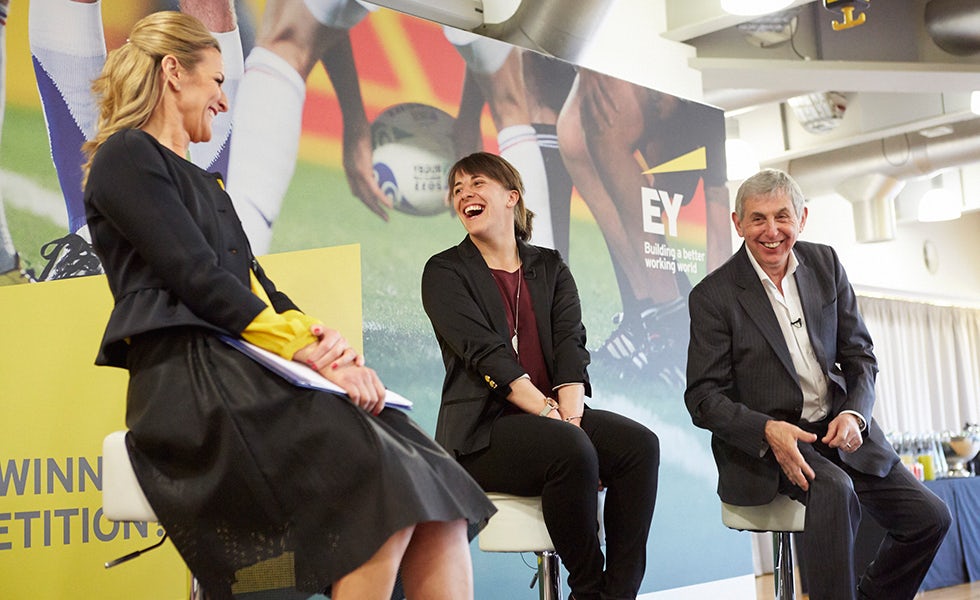
Tom Kingsley, sport and sponsorship director at EY, says the firm is primarily treating its Rugby World Cup partnership as a B2B activation, though it is also pushing out content from the seminars via its website and social channels. “On a daily basis we are asked by our clients about how to compete on a global stage,” he says.
“The association with the Rugby World Cup affords us the opportunity to explore some of those issues because it is the coming together of 20 elite rugby teams all with one aim – to win on the global stage.”
Benefits for ‘brand Britain’
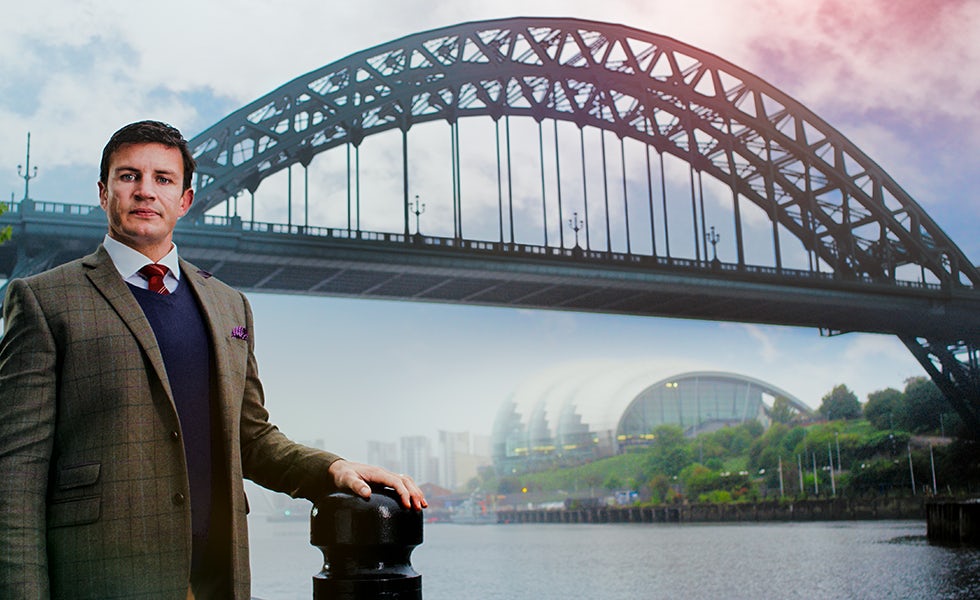
An analysis of the economic impact of the 2015 tournament, conducted by EY, forecasts that it will contribute up to £2.2bn in total expenditure to the host economy, translating into an additional £982m of value added to GDP. This includes an estimated £869m in direct spending from 466,000 international visitors.
Visit England, the national tourist board, has sought to encourage overseas visitors to come for an extended stay and experience the country’s range of tourist attractions. It has focused particularly on long-haul markets where rugby is a popular sport – such as Australia, New Zealand and Japan – in order to raise publicity for the tournament and arrange promotions with local tour operators.
Jeremy Brinkworth, Visit England’s project director for the Rugby World Cup, points out that at 44 days, the tournament is longer than most other global sporting events and is spread out across 11 cities. This provides ample opportunities for visitors to explore the country, with relatively long stretches between the matches played by each individual country.
“For people coming from places like Australia, it’s the trip of a lifetime because they’re coming so far and what they can see and do while they’re here is almost as important as the matches themselves,” says Brinkworth.
“With the European markets like France, Italy and Ireland, it’s also our job to give them reasons to stay and do as much as they can, rather than just coming for the games and then going home.”
Hotels, pubs and retailers across the country will seek to attract visitors with a wide range of promotions associated with the tournament. Last week, for example, John Lewis referenced the Rugby World Cup in a press and digital advertising campaign around the August bank holiday using the strapline ‘Get Closer to the Action’. The retailer claims that it can offer customers “everything from a TV to watch the match through to a rugby ball to play the game”.
Figures from outdoor media group JCDecaux show that 52% of people tend to spend more money in the pub during big sporting events, while 35% buy more food from the supermarket. However brands running promotions around the RWC must avoid falling foul of World Rugby’s rules around use of its trademarks and imagery (see below).
Brinkworth believes that ultimately the tournament will engage a broad cross-section of the population and create a buzz across Britain in a similar fashion to London 2012. “The feel-good factor should hit the country shortly,” he says. “With the tournament being on free-to-air television it’s going to be accessible to everyone, with lots of activity around it.”
Want to hear more? Sophie Goldschmidt from the RFU is speaking at our Festival of Marketing on November 11-12 in London. Join us there.
RWC marketing restrictions
Rules for marketing around the Rugby World Cup are not as draconian as those that accompanied the 2012 Olympics – when advertising a non-sponsor brand too close to the stadium could have earned you a criminal conviction – but businesses that are not official partners of the Rugby World Cup 2015 must take care to avoid infringing trademarks or implying an association with the tournament.
For example the terms Rugby World Cup, RWC and World Cup 2015; the Rugby World Cup “filleted fish” logo; and the Webb Ellis cup design are all registered as trademarks in the EU, so permission is needed to use these on any promotional material and products.
“No matter the size of your business, using a registered trademark such as a logo for commercial use without authorisation is classed as infringement and could result in a potentially costly lawsuit,” explains Julie Gonard, an attorney in the trademark team at law firm Wynne Jones.
“Business owners could then find themselves paying damages or account of profit to compensate the trade mark owner for its loss, be ordered to destroy the infringing products and could even be liable for criminal sanctions.”
Gonard adds that businesses planning to use images of a team or particular player should obtain permission from the copyright owner and, under some circumstances, the personalities before replicating these images for commercial gain.
“Using an image also risks infringing other people’s trademarks or design rights in general. For instance, player’s shirts and sports balls usually bear trademarks on them and team crests, balls or other products may also be protected as designs,” she says.
Although there is no limit on businesses using words like ‘rugby’ to promote their activities, they should avoid giving the impression that they are hosting official events or offering licensed products if there is no official partnership or endorsement, Gonard advises.
Reach of the Rugby World Cup
205: Territories broadcasting Rugby World Cup 2015 matches
5 million+ Applications made for the 2.3 million match tickets available during the 17-day general sale window in September 2014
500,000: Increase in users of RWC social media platforms in 2014
Source: World Rugby
Boost to the economy
£982m: Projected value added to UK GDP by RWC 2015
466,000: International visitors due to attend the tournament
£869m: Projected spend of international visitors during the tournament
Source: EY
Impact on consumer spending
52% of people say they spend more money in the pub during big sporting events
35% of people buy more food from the supermarket during big sporting events
24% of UK rail commuters plan to watch some of the RWC
Source: JCDecaux Connected Consumer panel
